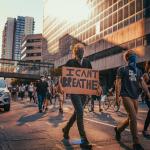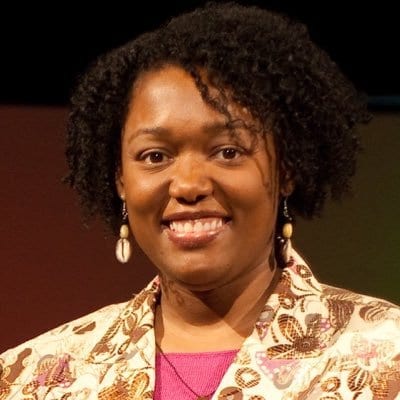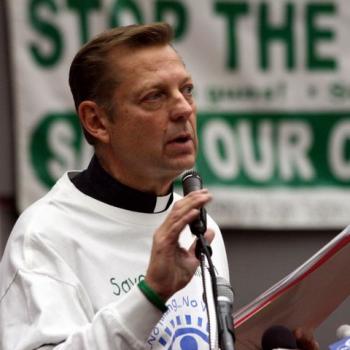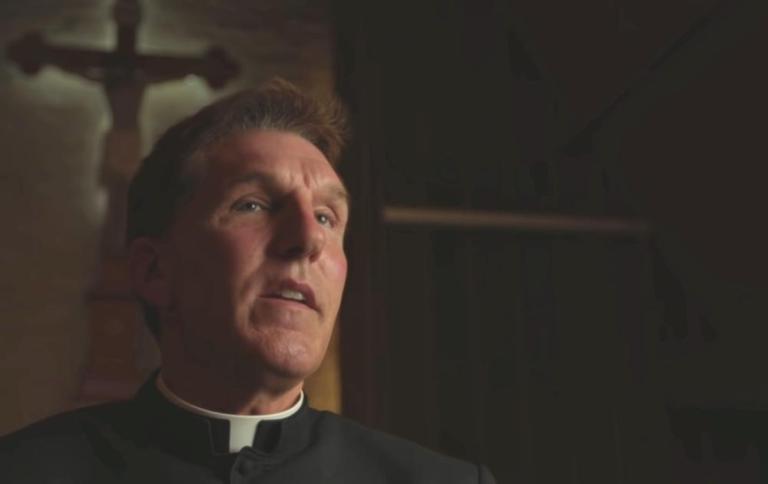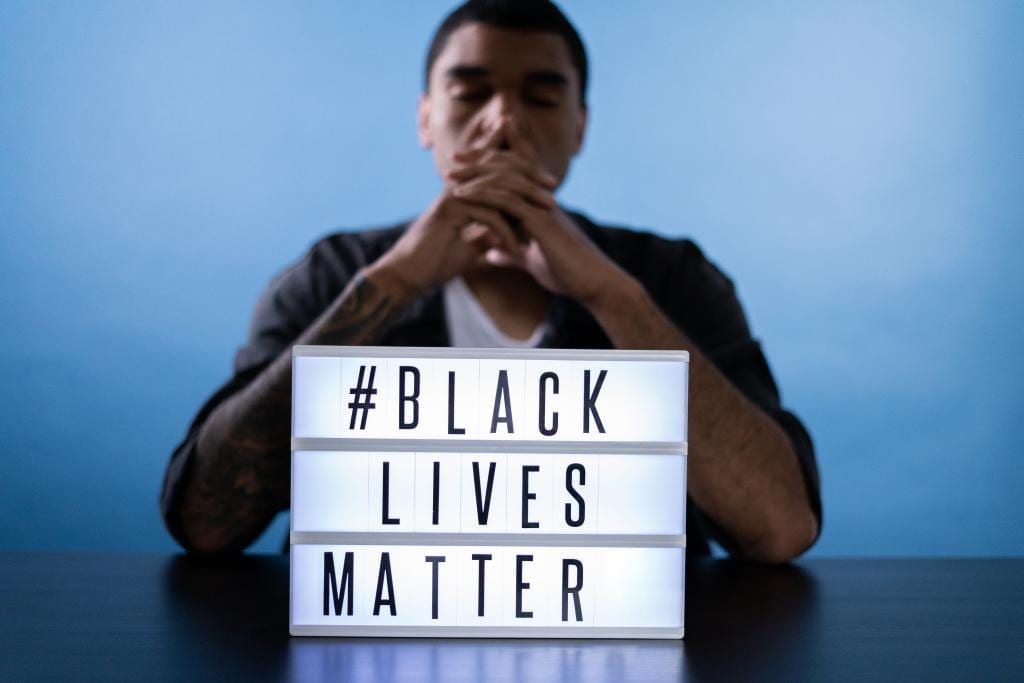
The first rough draft of the Black Lives Matter story I wrote last week for Our Sunday Visitor was a little over 2,100 words. My editor jokingly sent me a gif of a lumberjack in the woods firing up a chainsaw to let me know what we’d be doing to that first draft I admittedly overwrote.
The final product was still a healthy 1,600-word analysis of BLM, differentiating the social movement for racial justice from the decentralized organization of the same name that has dozens of chapters across the country and a global institutional presence in Canada and the United Kingdom.
My aim as a Catholic journalist was to be fair, offering an objective but critical look at Black Lives Matter and touching upon the common objections raised by politically-conservative Catholics that BLM advocates positions that are at odds with Catholic moral teaching, especially in the areas of sexual morality, gender identity and the family as the basic building block of society.
Writing such a story, with a working title “Can Catholics Support Black Lives Matter?“, I found that I had to be conscious of not equating my perspective as a white Catholic American with what it means to be authentically Catholic in the United States. In fact, one of the Black Catholic scholars I interviewed for the story, Dr. Tia Noelle Pratt, advised me to be mindful of that kind of framing.
“Part of the problem in the Church, part of the problem in discourse in and around Catholicism is equating Catholicism with whiteness… That’s one of the problems we’ve got in the church,” said Pratt, who curates the #BlackCatholics Syllabus, a collection of resources related to Black Catholics in the United States.
Pratt added: “There are plenty of white folks, Catholic or not, who are open to learning, who are open to growing, and those are the folks who are going to seek out information to educate themselves… Then there are people who are just not going to be interested, who are fine with the ideas that they have and aren’t interested in learning anything new.”
That was pretty evident in some of the social media responses I saw from people I’m convinced didn’t actually read the Our Sunday Visitor story. But that’s par for the course when we’re talking about Facebook and Twitter commentary on religion and politics.
Excuses, Excuses
It’s really been in the last month-and-half that Black Lives Matter has emerged as an excuse, in my opinion, for many Catholics and others to the right of the political center to dismiss the entire movement for racial justice. It kind of reminds me of how Antifa became a convenient bogeyman among some in politically-conservative circles to change the subject from the Unite the Right rally that brought Tiki Torch-bearing neo-Nazis and other chanting white nationalists together at Charlottesville, Virginia in August 2017.
Not for nothing, but many of the same people who are focusing heavily on Black Lives Matter right now were using different talking points in early June to deflect from the conversation on racism:
“There is no such thing as systemic racism.”
“Black on black crime kills more black people than police.”
“More black people are killed in abortions than by police.”
As I’ve written before in this space, the national reckoning with racism is an uncomfortable and unsettling subject for many white Americans, Catholics included, who may automatically get defensive or see a strategy being waged on them by an activist political Left they do not trust.
“What I see in the leaders of the Black Lives Matter movement is a political agenda of the radical left that would defund the police,” Vice President Mike Pence said in an interview with CBS News last month.
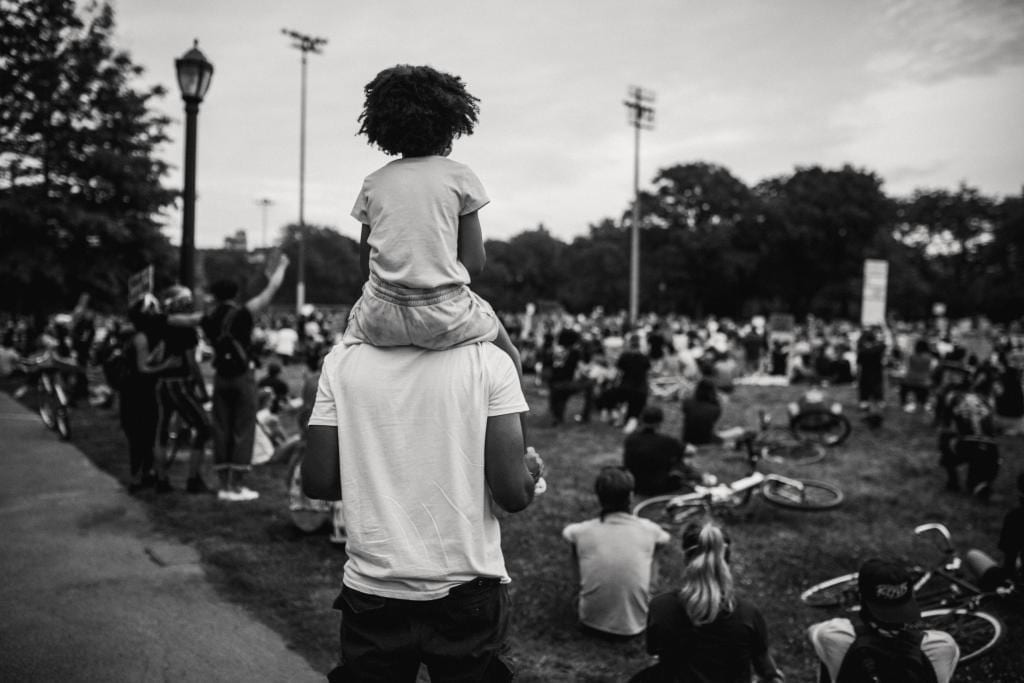
Photo by Life Matters from Pexels
It’s Complicated
The reality is more complicated; the three women who co-founded Black Lives Matter, Inc., undeniably have progressive revolutionary politics. Their organization’s website has a platform with positions that serious Catholic will have issues with, including working toward dismantling “cisgender privilege”; disrupting “the Western-prescribed nuclear family structure”; and fostering “a queer-affirming network … with the intention of freeing ourselves from the tight grip of heteronormative thinking.”
Individual BLM chapter websites also contain terminology, inspired by the ideologies of gender theory and class struggle, that critics see as evidence of Marxist influence. Some chapters say they are working to end the structural oppressions they argue are embedded in capitalism, “hetero-patriarchy” and transphobia.
Yet at the same time, BLM is a movement with no real hierarchy, organized leadership structure or unifying figure like a Rev. Martin Luther King. I know many people, Catholics and non-Catholics, who have marched recently with “Black Lives Matter” signs who you could not call Marxists or anti-Christian revolutionaries.
As a social movement, Black Lives Matter draws a pretty diverse crowd of people to the streets in terms of age, race, religion, gender and life experiences. You can find retirees marching alongside college students, young professionals, blue-collar workers, immigrants, straight, gay, etc.
A question I tried to touch on in the OSV story was how or whether Catholics can engage the movement in good conscience. Here, I think you find honest disagreement among Catholics who are people of good will and are honestly trying to tackle this subject in good faith.
Deacon Harold Burke-Sivers, a Catholic speaker and author who is Black, was an unequivocal NO: “There’s an entire other agenda here they’re promoting that has nothing to do with Black Lives Matter… By their own statements, that’s why it’s problematic, and that’s why Catholics cannot affirm the organization or be part of it whatsoever.”
In contrast, Deacon Lawrence Oney, a Black Catholic speaker, has many of the same concerns as Deacon Harold, but he sees enough common ground between BLM the organization and Catholics who are working for racial justice: “Can the Church, which has high morals and a memorialized body of social justice teachings, can we not find some point of agreement to march with our brothers and sisters who may be confused about their sexuality but are righteous in their resistance against racism and social inequity? I say yes.”
Dr. Pratt agreed, telling me in my interview with her that Catholic Social Teaching does not prevent us as a Church from agreeing with the BLM organization that we can affirm the human dignity of the LGBTQ community: “What is truly wrong with affirming our fellow human beings as just that? That is what we should all be doing for everyone. That shouldn’t be such a fight, and yet it is.”
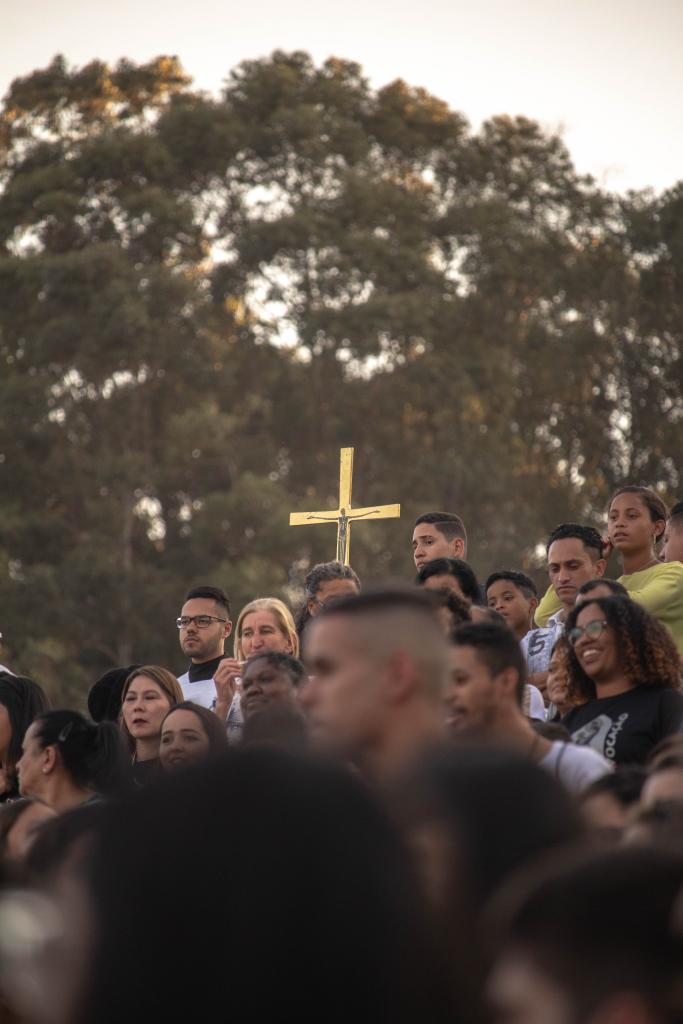
Subhead
Something many Catholics may not be aware of is that some of our bishops have engaged Black Lives Matter activists in recent years to better understand where they’re coming from. In 2016, now-retired Bishop Edward Braxton of Belleville wrote a pastoral letter where he examined “the profound differences and seeming incompatibility between the teachings of the Church and the Black Lives Matter Movement.”
Bishop Braxton, who is Black, said the movement’s leaders and supporters themselves saw “an incompatibility” between BLM and what they saw as the Church’s “out of touch” teachings on marriage, abortion, homosexuality and contraception.
“However, does this necessarily mean that a representative of the Church cannot have a meaningful conversation with representatives of the movement about these and other issues where there may be greater accord,” wrote Bishop Braxton, who added that his dialogue with BLM movement members had allowed him to present to them the Church’s teachings on poverty, race, marriage, human dignity and sexuality.
“The Church has a grave responsibility to contribute to the ongoing conversion and spiritual transformation of us all. Working tirelessly day by day, we are co-workers with Christ,” the bishop wrote.
In the end, that may be the most important thing to highlight. As Bishop Braxton noted, even if Catholics have a problem with Black Lives Matter because of the organization’s politics, that does not absolve today’s disciples of Jesus Christ from speaking out and condemning racism where it exists, and from working to eradicate social structures of sin in our country.
In the 21st century United States, there is no excuse for a Catholic not to be actively anti-racist.
“We’ve really seen these last few weeks a page-turner type of situation in that we’re seeing a reckoning, a needed reckoning about how our society operates, about what we prioritize, about what we will live with and be willing to live with in a society,” Pratt said. “We need to be a society that decides we’re not going to live with men, women and children being murdered in the streets. Why is that so hard? That should be an easy decision to come to as a society, especially when we’re talking about communities that are made up of people of faith.”
Reporter’s note: A reporting error in a quote by Dr. Tia Noelle Pratt in the above column has been corrected. I regret the error.
-30-

